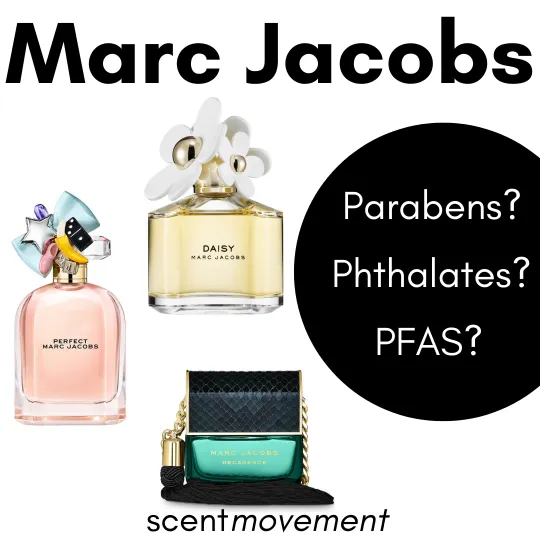
The name Marc Jacobs evokes images of modern fashion, edgy designs, and bold fragrances. However, behind this iconic brand lies a rich history shaped by the journey of an extraordinary designer.
Marc Jacobs, the man behind the brand, was born in 1963 in New York City. A love for fashion led him to the High School of Art and Design and then to the Parsons School of Design. His career began to soar when he became the youngest designer ever to receive the prestigious New Designer of the Year award from the Council of Fashion Designers of America (CFDA) in 1987.
In 1993, he established his eponymous label, which would go on to become a leading player in the global fashion scene. As of my knowledge cutoff in September 2021, the Marc Jacobs brand had released over 30 perfumes, catering to both men and women. Each fragrance tells its own story, blending traditional elements with a modern twist.
As for the price range, Marc Jacobs perfumes typically vary from about $60 to $150, depending on factors such as the specific perfume and bottle size. This range allows consumers with different budgets to experience the brand’s unique olfactory offerings.
Marc Jacobs perfumes can be purchased at various locations worldwide. This includes high-end department stores like Nordstrom, Bloomingdale’s, and Neiman Marcus. Of course, the fragrances are also available in Marc Jacobs boutiques and online on the brand’s official website. For those who prefer online shopping, reputable e-retailers like Sephora, Ulta, and Amazon offer a wide selection of Marc Jacobs fragrances.
From the vibrant floral notes of Daisy to the sensual hints of Decadence, Marc Jacobs’s perfumes are a testament to the brand’s flair for capturing complex emotions and narratives in beautifully crafted bottles. Each scent embodies the brand’s spirit—playful, unexpected, and always luxurious. So, whether you’re a longtime fan or a curious newcomer, Marc Jacobs’s fragrances invite you to discover a world of fashion-forward aromas.
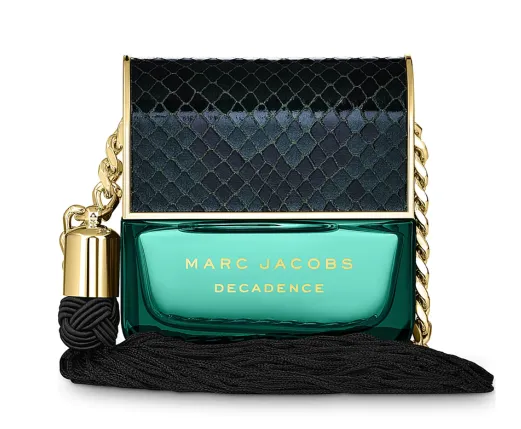
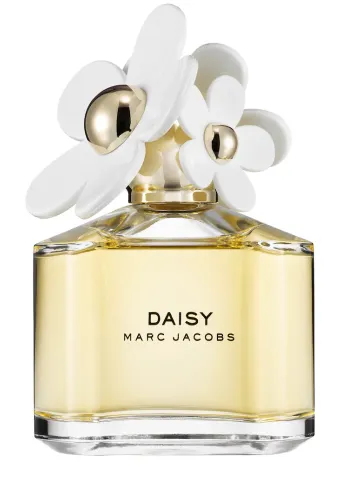
The Marc Jacobs brand, including Marc Jacobs perfumes, is owned by the LVMH Group (Moët Hennessy Louis Vuitton), one of the biggest luxury goods conglomerates in the world.
Founded in 1987, LVMH is a French multinational corporation and conglomerate specializing in luxury goods, headquartered in Paris. The group controls around 60 subsidiaries, each managing a small number of prestigious brands. LVMH’s portfolio includes some of the most celebrated brands in the realms of wines and spirits, fashion and leather goods, perfumes and cosmetics, watches and jewelry, and selective retailing.
LVMH acquired a majority stake in the Marc Jacobs brand in 1997. Since then, Marc Jacobs has continued to flourish under the LVMH umbrella, expanding from fashion into various other areas, including perfumery.
As a part of LVMH, Marc Jacobs perfumes benefit from the parent company’s vast resources and extensive experience in the luxury market.
Here are the top ten most popular Marc Jacobs fragrances:
Marc Jacobs Daisy: This fresh, playful scent combines notes of strawberry, violet leaves, and jasmine for a bright, youthful fragrance. It’s a staple in many perfume collections.
Marc Jacobs Decadence: With its lush, woody scent and glamorous bottle, Decadence is the epitome of luxury. Its main notes include plum, saffron, and amber.
Marc Jacobs Daisy Dream: Daisy Dream offers a lighter, more ethereal take on the original Daisy, featuring blackberries, blue wisteria, and white woods.
Marc Jacobs Daisy Eau So Fresh: A more fruity and bubbly version of the original Daisy, it offers notes of raspberry, pear, and grapefruit.
Marc Jacobs Dot: This whimsical fragrance packs a punch with its fusion of red berries, dragonfruit, and honeysuckle.
Marc Jacobs Daisy Love: Daisy Love is a sweet, alluring scent that captivates with its notes of cloudberries, daisy tree petals, and cashmere musks.
Marc Jacobs Daisy Love Eau So Sweet: A sugar-coated variation of Daisy Love, this fragrance is as sweet as its name suggests, with notes of white raspberry, sugar musk, and cloudberries.
Marc Jacobs Perfect: Inspired by Jacobs’s mantra, “I am perfect as I am,” this modern, bright, and feminine scent features notes of rhubarb and daffodil.
Marc Jacobs Honey: As the name suggests, this perfume is a sweet, sunny elixir with notes of pear, orange blossom, and honey.
Marc Jacobs Lola: Lola is a warm floral fragrance with layers of pink peppercorn, ruby red grapefruit, and creamy musk.
Each of these Marc Jacobs fragrances has its own personality, but all share a common DNA that is unmistakably bold, modern, and chic, much like Marc Jacobs himself. Whether you’re looking for something youthful and fresh or something rich and luxurious, this list offers a fragrance to suit every taste.
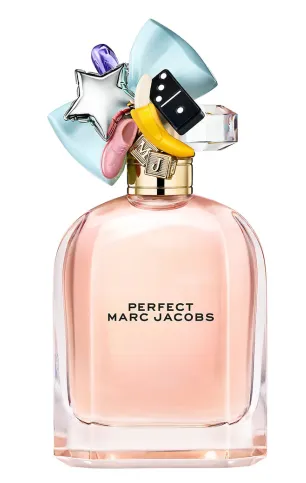
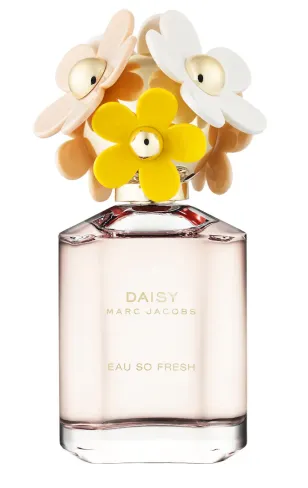
First Fragrance: Marc Jacobs launched his first perfume, simply named Marc Jacobs for Women, in 2001. It was a sophisticated and memorable fragrance featuring notes of gardenia, bergamot, and jasmine.
Perfume Bottles: Many of the Marc Jacobs perfume bottles are designed with unique and whimsical motifs. The Daisy line, for instance, is known for the charming daisy flowers that adorn the cap.
Award-Winning Scents: Several Marc Jacobs fragrances have received awards from the Fragrance Foundation, a testament to their quality and popularity. The original Daisy, for instance, won the Women’s Luxe Fragrance of the Year award in 2008.
Celebrity Fans: Many celebrities are known to be fans of Marc Jacobs perfumes. Supermodel Karlie Kloss, for instance, has mentioned Daisy as one of her favorite fragrances.
Personal Touch: The perfume Perfect is inspired by Marc Jacobs’s personal tattoo of the word “perfect” on his wrist. It’s a reminder of his belief in accepting oneself as perfect as they are.
Master Perfumers: Marc Jacobs collaborates with renowned perfumers to create his fragrances. Some of the prominent names include Alberto Morillas, Annie Buzantian, and Carlos Vinals.
Charitable Cause: In 2020, Marc Jacobs released a limited edition of Daisy in partnership with the charity The Trevor Project, which provides crisis intervention and suicide prevention services to LGBTQ+ youth. Proceeds from sales went to support the organization’s mission.
Marc Jacobs perfumes are sold at both Sephora and Ulta, but do not meet either store’s “clean” standards.
Marc Jacobs is not transparent about what ingredient are in their perfumes.
Without a statement from a brand stating that their products are paraben-free, you have to assume they are not paraben-free.
This is the case with Marc Jacobs– we have to assume all Marc Jacobs perfumes do contain parabens.
Yes, we have to assume Marc Jacobs perfumes contain phthalates (since they are not transparent about the ingredients they use).
Yes, we have to assume Marc Jacobs perfumes contain PFAS, since they have not made any claims otherwise.
We don’t recommend Marc Jacobs perfumes. Marc Jacobs is not transparent about what ingredients they use in their perfumes. Marc Jacobs does not meet the “Clean at Sephora” or Ulta’s “Clean” standards, which prohibits such ingredients. Therefore, we have to assume Marc Jacobs perfumes contain parabens, phthalates and PFAS. These ingredients have concerning health implications (more on that here).
There are tons of perfumes on the market that don’t contain concerning ingredients – and these are the perfumes we use and recommend.
As consumers are becoming aware of the concerning ingredients in perfumes, many consumers are actively searching out better, safer perfumes. This is more than a passing trend. This is where the perfume industry is headed. Here at scentmovement, we’re here to promote this movement – browse around our site if you’re looking for perfume recommendations, reviews or dupes!
What else can you do? Consumers hold real power to incite change in brands. Your voice and dollar is powerful.
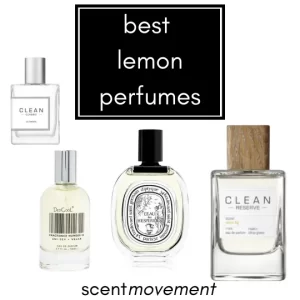
Lemon-scented perfumes give you a zesty pep in your step and make every day feel like a sunny, fun-filled adventure! Here’s the best lemon perfumes!
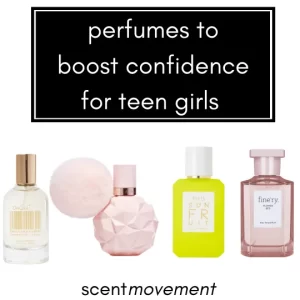
If you’re looking to boost your teen’s confidence, check out these perfumes.